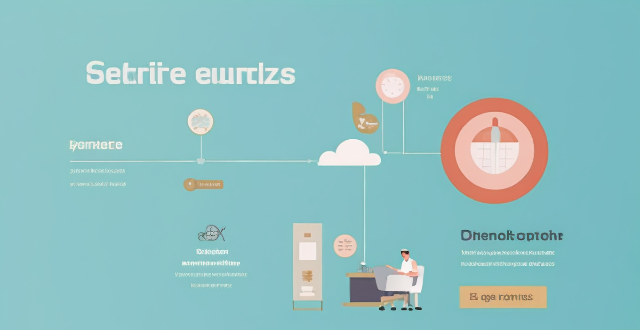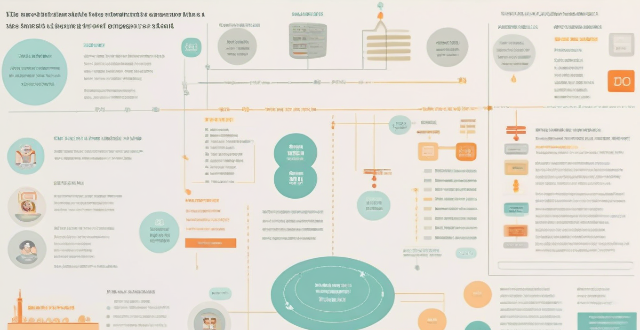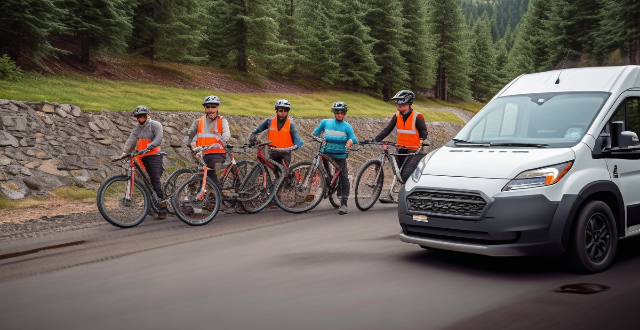Participant Registration

How can I organize a sports event to benefit a charity organization ?
Organizing a sports event to benefit a charity organization involves several key steps, from planning and preparation to post-event follow-up. Here's a detailed outline of how to go about it: ### Planning and Preparation 1. **Choose the Right Sport:** Select a sport that will attract participants and spectators likely to support your chosen charity. Ensure the sport is accessible to people of all ages and skill levels. 2. **Set Clear Objectives:** Define how the event will benefit the charity and set fundraising goals. 3. **Select an Appropriate Venue:** Find a venue that can accommodate the expected number of participants and spectators, ensuring it has adequate facilities like restrooms and parking. ### Promotion and Marketing 1. **Create a Marketing Plan:** Outline how you will promote the event to maximize participation and awareness for the charity. Use multiple channels such as social media, local advertising, and word-of-mouth. 2. **Partner with Local Businesses:** Seek sponsorships from local businesses in exchange for promotion during the event. Offer sponsors perks like logo placement or exclusive advertising rights. 3. **Leverage Social Media:** Create dedicated social media pages for the event to keep participants and supporters updated. Engage with your online community by sharing updates, answering questions, and encouraging participation. ### Registration and Participation 1. **Simplify the Registration Process:** Offer easy online registration using platforms like Eventbrite or Active.com. Provide clear information about the event, including dates, times, fees, and registration deadlines. 2. **Offer Incentives for Participation:** Introduce rewards or recognition programs for participants who meet certain fundraising milestones. Publicly acknowledge top contributors through awards or special mentions. ### Event Day Logistics 1. **Coordinate Volunteers:** Gather a group of volunteers to help with tasks like setup, registration, and cleanup. Assign roles to ensure smooth operation on the day of the event. 2. **Manage Facilities and Supplies:** Make sure all necessary sports equipment is available and properly maintained. Arrange refreshments like water, snacks, and possibly post-event meals for participants and volunteers. 3. **Maintain Safety Standards:** Have first aid kits available and establish emergency protocols. Consider hiring medical staff or security personnel depending on the size and nature of the event. ### Post-Event Follow-Up 1. **Thank Participants and Sponsors:** Show appreciation through thank-you notes or emails to everyone involved. Share success stories publicly to highlight the impact of the event on the charity and its beneficiaries. 2. **Evaluate the Event's Success:** Solicit opinions from participants, volunteers, and sponsors to understand what worked well and what could be improved. Analyze financial results to see if fundraising goals were met and identify areas for future growth. By following these steps, you can successfully organize a sports event that not only engages the community but also makes a significant contribution to your chosen charity organization.

How long does it take to register a SIM card ?
Registering a SIM card involves providing personal information and verifying identity with the mobile network operator. The time it takes to register can vary depending on factors such as country, mobile network operator, and registration method. Online registration typically takes around 10-15 minutes, while in-person registration can take longer. Tips for speeding up the process include researching requirements, having necessary documentation ready, opting for online registration if possible, following instructions carefully, and being patient during the review and activation process.

How do sports event organizers ensure the safety of participants and spectators ?
Sports event organizers have a significant responsibility to ensure the safety of participants and spectators. This comprehensive guide outlines the various measures taken by organizers to guarantee a safe environment for everyone involved, including risk assessment and planning, security measures, medical support and services, spectator education, participant safety, and venue maintenance.

How can I book local experience activities online ?
### How to Book Local Experience Activities Online Booking local experience activities online involves several steps, from identifying your interests to making a reservation on an online platform. Here's a detailed guide: 1. **Identify Your Interests**: Determine the type of local experiences you're interested in, such as food tours, cooking classes, historical walks, outdoor adventures, or cultural workshops. 2. **Research Online Platforms**: Look into platforms like Airbnb Experiences, GetYourGuide, Viator, Klook, and TripAdvisor that offer a wide range of activities led by local hosts. 3. **Read Reviews and Ratings**: Before booking, read reviews and ratings from previous participants to gauge the quality and authenticity of the experience. 4. **Check Availability and Booking Terms**: Ensure the activity is available on your desired date and time, and review booking terms including cancellation policies and any requirements. 5. **Make the Reservation**: Select your preferred date and time slot, provide participant details, and enter payment information to secure the booking. 6. **Confirmation and Preparation**: After booking, receive a confirmation email with details about the activity, meeting point, and special instructions. Use this information to prepare for the experience. 7. **Enjoy Your Local Experience**: Arrive at the designated location on time, engage with the host and other participants, and immerse yourself fully in the activity. Take photos to remember the experience by.

How can sports events be used to raise funds for charity ?
**Raising Funds for Charity through Sports Events: A Guide to Integrating Fundraising into Sports Events** **Introduction: The Power of Sports in Fundraising** - Sports events are a powerful tool for raising funds and awareness for charitable causes. **Strategies for Integrating Fundraising into Sports Events** 1. **Ticket Sales and Donations:** Charge admission fees and place donation boxes at event entrances and exits. 2. **Corporate Sponsorships:** Partner with local businesses and create sponsor challenges within the event. 3. **Merchandise Sales:** Sell branded merchandise and auction off unique items during the event. 4. **Peer-to-Peer Fundraising:** Encourage participants to raise money through their personal networks and leverage online platforms. **Implementation Steps for Successful Fundraising** 1. **Clear Objectives and Communication:** Set clear goals and keep donors informed about how their contributions will be used. 2. **Event Promotion and Marketing:** Utilize social media, engage with local media outlets, and promote the event and its charitable cause. 3. **Streamlined Operations:** Simplify the registration process and ensure transparent financial management. **Conclusion: The Lasting Impact of Sports Fundraising** - Use the event as a springboard for ongoing fundraising efforts and share stories of how the funds raised have made a difference.

How do I know if my SIM card is already registered ?
To check if your SIM card is registered, you can contact your service provider by phone or visit a store, check online through their website/app, email inquiry, check SMS alerts, look for verification codes like OTP and banking alerts, and use government portals like eKYC services and TAN/Form 26AS notifications.

What are the consequences of not registering a SIM card ?
Not registering a SIM card can lead to legal implications, security risks, and inconvenience. It is essential to follow local regulations and service provider guidelines to avoid adverse consequences due to non-registration.

How can we measure the success of a safety drill ?
The article discusses the importance of evaluating safety drills to improve emergency response and preparedness. Key factors to consider include compliance with safety procedures, participant engagement, effectiveness of communications, availability and functionality of equipment and resources, and overall performance. By measuring the success of a safety drill, organizations can identify areas for improvement and ensure that their employees are well-prepared to handle emergency situations effectively.

What information is required to register a SIM card ?
Required Information for SIM Card Registration Personal Information: Full name, date of birth, address, phone number, email address. Identification Documents: Government-issued ID and proof of address. Payment Information: Credit/debit card or bank account details. Additional Information: Employment information, social security number or tax ID, referral code (if applicable).

Can I register a SIM card online ?
The process of registering a SIM card online involves choosing a mobile network operator, visiting their website, entering personal information, activating the SIM card, waiting for confirmation, and starting to use the new SIM card. It is a convenient and easy process that allows users to activate their mobile service without having to visit a store in person.

Is there a fee to register a SIM card ?
Registering a SIM card is crucial for mobile phone users to access services from network operators. Prepaid SIM cards are generally free to register, while postpaid ones may incur a fee. Despite potential fees, registering provides benefits like identity verification, security, and customer support.

What happens if I don't register my SIM card ?
Registering a SIM card is an essential process for using mobile services. If you don't register your SIM card, there are several consequences that you may face, including limited access to mobile services, inability to activate additional features, difficulty in resolving issues, potential legal implications, and inability to prove ownership. It is important to understand the local laws regarding SIM card registration before deciding not to register. Registering your SIM card ensures full access to mobile services, ability to activate additional features, easier issue resolution, compliance with legal requirements, and proof of ownership.

Are there any legal requirements for installing a burglar alarm system ?
Legal Requirements for Installing a Burglar Alarm System Security is an essential aspect of modern life, and installing a burglar alarm system can significantly enhance the safety of homes and businesses. However, there are legal requirements that must be met before installing such systems. This article discusses the legal requirements for installing a burglar alarm system, including obtaining permits and licenses, checking insurance requirements, and adhering to local regulations and ordinances. By complying with these requirements, you can ensure that your burglar alarm system provides effective security while meeting all legal obligations.

Are there any government incentives for purchasing a Series Hybrid Electric Vehicle ?
Government incentives for purchasing a Series Hybrid Electric Vehicle (HEV) vary by country and may include tax credits, rebates, exemptions from fees, charging infrastructure support, and parking benefits. These incentives can help offset the higher initial purchase price of HEVs compared to conventional gasoline vehicles.

What are the key factors to consider when organizing a successful sports event ?
Key factors to consider when organizing a successful sports event include: 1. Venue selection, ensuring it is spacious, safe, and accessible with adequate facilities. 2. Scheduling, including start times, duration, breaks, intervals, and weather considerations. 3. Proper equipment and supplies availability, maintenance, and replacement. 4. Adequate staffing for various tasks such as registration, officiating, security, and medical assistance. 5. Effective marketing and promotion strategies to attract participants and spectators. 6. Clear rules and regulations communicated to all involved parties. 7. Safety measures in place, including trained medical personnel, crowd control, emergency instructions, and regular safety checks.

What are the safety precautions I should take during a solo road trip ?
When preparing for a solo road trip, prioritize safety by maintaining your vehicle, packing an emergency kit with essentials like a first aid kit and tools, planning your route using GPS and paper maps, ensuring communication is possible through a charged phone and roadside assistance, staying alert and locking doors for personal safety, checking the weather forecast and having rain gear, taking care of your health by staying hydrated and taking breaks, carrying necessary documentation including driver's license, registration, and insurance, and making copies of important documents. These precautions will help ensure a safer and more enjoyable journey.

Can viewers always trust what they see on variety shows, or is it often scripted for drama ?
The text delves into the nature of variety shows, addressing the balance between scripted segments and moments of genuine spontaneity. It underscores that while not all parts are unplanned, many are carefully choreographed to ensure seamless performances, especially in high-energy acts. The discussion highlights the roles of editing and participant roles in shaping the final product, enhancing dramatic impact, and maintaining consistency. Furthermore, it emphasizes the inclusion of drama in variety shows to heighten emotional engagement and provide narrative arcs, cautioning viewers about distinguishing genuine from scripted elements. Overall, the text suggests that viewers should be aware of the show's structured aspects but can still enjoy its entertainment value, appreciating the blend of scripted drama and real-life experiences.

Where can I go to register a SIM card in person ?
This guide provides a detailed explanation of where to go for SIM card registration, the required documents and process, tips for a smooth experience, and additional information to help individuals successfully register for a SIM card in person while in China. It covers visiting directly operated service halls of major network operators, necessary documents like a passport, steps involved in the application process, communication tips, and more. By following this guide, individuals can save money on data plans and easily use local apps and services.

How do carbon offset projects get verified ?
The verification process for carbon offset projects involves multiple stages, including project registration, preparation of a Project Design Document (PDD), review and approval by third-party auditors, ongoing Monitoring, Reporting, and Verification (MRV), certification, issuance of credits, continuous improvement, and re-verification. This process ensures the genuineness, effectiveness, and sustainability of these projects in mitigating climate change. Key points to remember include the importance of transparency, independent verification, continuous monitoring, and adaptability.

How can we ensure that donations to celebrity-endorsed charities are being used effectively ?
Ensuring that donations to celebrity-endorsed charities are being used effectively can be achieved by following several steps. First, verifying the charity's registration and accreditation is crucial. Secondly, scrutinizing financial reports for transparency and high program expenses is essential. Thirdly, evaluating impact and outcomes through performance metrics and third-party evaluations is important. Fourthly, understanding the celebrity's involvement in terms of active participation and alignment with the cause is necessary. Lastly, monitoring ongoing activities through regular updates and ongoing commitment is vital. By taking these steps, donors can help ensure that their contributions make a significant impact.

What should I consider before buying a used car from a private seller ?
When considering purchasing a used car from a private seller, it is crucial to evaluate several key factors to ensure a successful and safe transaction. These include checking the vehicle's history for accidents and maintenance records, conducting a thorough inspection and test drive, verifying legal aspects such as a clean title and valid registration, negotiating a fair price, completing the transfer of ownership correctly, and fulfilling post-purchase steps like obtaining insurance. By attending to these details, buyers can minimize risks and enjoy their new vehicle with confidence.

How do I plan a self-drive tour through the Australian outback ?
Planning a Self-Drive Tour through the Australian Outback requires careful consideration of vehicle selection, route planning, accommodation, supplies, safety measures, legal requirements, and cultural respect. Essential steps include choosing an appropriate vehicle, booking accommodations in advance, packing emergency supplies, checking weather conditions, informing others about your itinerary, and familiarizing yourself with local customs. Popular routes such as The Red Centre Way, The Savannah Way, and The Explorer's Way offer unique experiences and breathtaking landscapes. Proper preparation ensures a safe and memorable adventure through Australia's vast outback.

How can I make the most out of group study sessions ?
Group study sessions can be an incredibly effective way to learn and review material. By pooling knowledge, sharing insights, and engaging in collaborative learning, students can deepen their understanding of complex topics and improve their academic performance. To make the most out of group study sessions, consider the following strategies: ## Setting Clear Objectives - **Establish Goals**: Before diving into a study session, it's important to set clear objectives. Decide what topics or areas you want to cover and what you hope to achieve by the end of the session. - **Create an Agenda**: Prepare a structured agenda that outlines the topics to be discussed and the time allocated for each. This helps keep the study session focused and productive. ## Preparation is Key - **Assign Pre-reading**: Encourage all group members to do some pre-reading or pre-work before the session. This ensures everyone comes prepared with basic knowledge and questions to discuss. - **Bring Materials**: Each participant should bring relevant textbooks, notes, or any other materials that could facilitate the discussion. ## Active Participation - **Engage Actively**: Encourage all members to actively participate by asking questions, sharing insights, and contributing to discussions. - **Take Turns Teaching**: Rotate the role of "teacher" among group members. Research shows that teaching a concept to others reinforces your own understanding. ## Promote Collaboration - **Share Different Perspectives**: Each member may have a unique approach or perspective on the material. Encourage sharing these viewpoints to enrich the discussion. - **Brainstorm Together**: When confronted with challenging problems or concepts, work together to brainstorm solutions. ## Stay Focused - **Minimize Distractions**: Try to minimize distractions during the study session. Put away phones, limit side conversations, and create an environment conducive to learning. - **Stick to the Agenda**: Keep the discussion on track by referring back to the agenda and managing the time spent on each topic. ## Review and Reinforce - **Recap Key Points**: At the end of the session, summarize the key points covered. This helps reinforce learning and provides a quick reference for future studying. - **Assign Follow-up Tasks**: Assign tasks or exercises to be completed before the next session. This keeps the momentum going and ensures continued engagement with the material. ## Evaluate and Reflect - **Reflect on the Process**: Take a few minutes at the end of the session to reflect on what worked well and what could be improved. This helps fine-tune future study sessions. - **Evaluate Learning Outcomes**: Consider assessing your understanding through quizzes or short tests after a series of study sessions to evaluate the effectiveness of the group learning process.

How can governments regulate the use and disposal of harmful chemicals ?
Governments can regulate the use and disposal of harmful chemicals through legislation, education and awareness programs, and enforcement and monitoring. Laws and regulations should cover all aspects of chemical management, including registration, labeling, restrictions on use, safe handling, waste management, and penalties for non-compliance. Public education campaigns and training programs can help businesses and consumers understand the risks associated with harmful chemicals and how to safely handle and dispose of them. Regular inspections and audits can ensure compliance with laws and regulations, identify potential hazards, and verify that proper safety measures are in place. Reporting and record-keeping requirements can also help government agencies monitor chemical management practices and ensure compliance with regulations.

How can we encourage more people to participate in sports activities in rural areas ?
To encourage more people to participate in sports activities in rural areas, a comprehensive approach is needed that includes infrastructure development, education and awareness, community engagement, partnerships and sponsorships, and the use of technology and media. This involves building and maintaining sports facilities, promoting the benefits of physical activity through educational programs, forming local sports clubs and leagues, seeking sponsorships from businesses and government initiatives, and utilizing digital platforms and media coverage to increase visibility and interest in sports activities.

What is the Celebrities for a Green Planet campaign, and who are some notable participants ?
The Celebrities for a Green Planet campaign is a global initiative that aims to raise awareness about environmental issues and promote sustainable living. It involves celebrities from various fields, including music, film, sports, and fashion, who use their influence to inspire fans and followers to take action for the planet. Notable participants include Leonardo DiCaprio, Emma Watson, Pharrell Williams, Shailene Woodley, and Cate Blanchett. Their efforts help to bring attention to important environmental issues and encourage people around the world to take action for a healthier planet.

What is blockchain technology and how does it relate to cryptocurrency ?
Blockchain technology is a decentralized, distributedBlockchain technology is a decentralized, distributed transactions in a secure and im It is the foundational structure for cryptocurrencies, which are digital or virtual currencies that use cryptography for security and operate independently of a central bank. The key features of blockchain include decentralization, immutability, transparency, and security. Cryptocurrencies rely on blockchain technology to maintain a transparent and secure system for recording transactions without intermediaries like banks. Transactions are validated by network participants through consensus algorithms like Proof of Work (PoW) or Proof of Stake (PoS), and new coins can be issued as rewards for those who validate transactions and maintain the network. Overall, blockchain technology enables a peer-to-peer electronic cash system that is both secure and decentralized.

How do biosafety policies address the risk of accidental or intentional release of harmful biological agents ?
Biosafety policies are comprehensive measures designed to manage the risks associated with accidental or intentional releases of harmful biological agents. These include: 1. **Biosafety Levels**: Four tiers of guidelines for handling different risk groups of microorganisms, each with specific facility, equipment, and training requirements. 2. **Laboratory Procedures**: Strict adherence to safety procedures using engineering controls, personal protective equipment, standard microbiological practices, and waste management protocols. 3. **Regulations and Compliance**: Government laws and regulations ensuring safe handling through transportation guidelines, facility registration, reporting requirements, and oversight by agencies like the CDC. 4. **Training and Education**: Regular sessions on biosafety practices, emergency response, and continuous learning to keep personnel updated. 5. **Incident Response Plans**: Preparedness for incidents through emergency response teams, decontamination procedures, medical treatment, and communication strategies. By addressing these aspects diligently, biosafety policies aim to minimize the risk of accidental or intentional release of harmful biological agents.